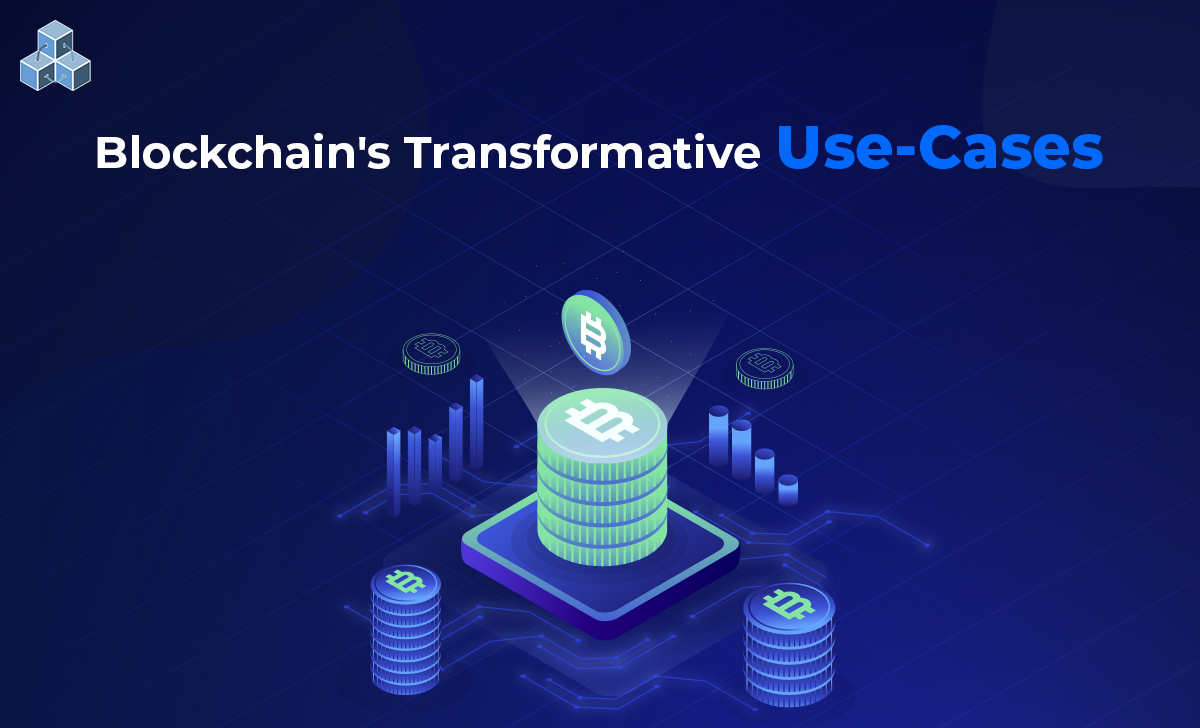Blockchain is an emerging, transformative technology revolutionizing industries beyond cryptocurrencies. Blockchain started the global payment system. This decentralized platform offers various possibilities, enhancing security and enabling trust across different sectors. Blockchain gained significant attention with its potential to redefine the methods we lead the business.
Beyond cryptocurrency, blockchain offers a range of use cases that help enhance transparency, security and efficiency. Blockchain use cases can be used in any field which requires data integrity, privacy and transactions. It offers a decentralized system with more privacy and efficiency. In this article, we will explore a range of use cases that are causing a significant impact on blockchain platforms.
What is Blockchain Technology?
Blockchain is a decentralized network of peers who can interact, communicate and share information. It is a transparent digital ledger which helps record user transactions across multiple computers. Blockchain offers secure and unchangeable data storage and eliminates the need for intermediate.
Blockchain uses various consensus algorithms that help ensure that the transactions are valid and authenticated. Blockchain consists of a chain of blocks containing transactions which verify through a consensus mechanism. With its decentralized nature and cryptographic protocols, blockchain is suitable for various applications, including smart contract development, supply chain management, and more.
Blockchain Use Cases
- Financial Services:- Blockchain technology is revolutionizing the traditional financial industry by delivering a decentralized network which works faster, is more secure, cost-effective and enables secure transactions. It eliminates the need for an intermediate, enhances identity verification, and offers automated smart contract agreement transactions.
- Supply Chain Management:- Blockchain provides a transparent network for managing the supply chain to reduce fraud and ensure authenticity. With this, the stakeholder can track the movement of goods, verify their authenticity and improve logistics and inventory management.
- Identity Management:- Blockchain allows individuals to manage their digital identities, verify credentials, and share only selective information with third parties. This helps reduce identity theft and fraud and improves KYC processes.
- Cross-Border Payment:- Transferring money across can be quite expensive. Payment services providers charge a fee from customers for their services. On the other hand, cross-border payment applications are fast and cost-effective and can help users and newer businesses.
- Gaming and Virtual Asset:- Blockchain offers secure ownership of in-game assets and introduces a rich ecosystem for players. It enables players to own their in-game virtual assets and facilitates trading them on decentralized platforms creating new economics within games.
- Supply Chain Finance:- Blockchain-based supply chain finance allows financing suppliers by creating transparent and auditable transaction records. It helps enable faster invoice settlement, reduce fraud risks, improve cash flow and enable better capital access for small as well as medium-sized enterprises.
- Government Services:- Blockchain offers a safe, secure and transparent platform for various government processes such as land registration, identity management, and public expenses. It helps reduce corruption, improves delivery services and secure digital voting systems.
- Internet of Things:- Blockchain improves security and interoperability in a number of IoT sectors. It enables safe data sharing, improves identity management and promotes micro-transactions between devices. It helps monitor machinery record activities and output as an option to cloud solutions.
- Regulatory Compliance and Audit:- Blockchain offers incredible security, which is valuable for accounting and auditing services as it removes the possibility of human error and assures the virtue of records. No one can alter the documents once they are sealed using blockchain.
- Money laundering Protection:- Encryption in blockchain makes it helpful in battling money laundering issues. The technology certifies record keeping and supports KYC (Know Your Customer). It is a process by which a business recognizes and verifies the self-identity of the clients.
- Real Estate:- Blockchain can be valuable in the real estate market. It can increase home sales quickly, verify finances, decline fraud and offer transparency throughout the complete procedure of selling and purchasing.
- Smart Contract:- Smart contracts are automated contracts with terms and conditions which help reduce reliance on manual processes and enhance efficiency. It helps relieve human-error in contracts and opens up new opportunities.
- Peer-to-Peer Transactions:- Some services restrict transactions while others charge high prices for their use. Some are vulnerable to hacks that make it difficult for customers to put their financial information out there. Blockchain helps fix all these issues with its benefits.
- Healthcare:- Blockchain ensures secure storage of data and sharing of patient health records, enhancing privacy, virtue and accessibility. It helps remote monitoring of patients and telemedicine services. It creates a transparent network that enables immutable tracking of clinical trial data and improves trust and data sharing among researchers.
- Cryptocurrency:- Cryptocurrencies are a financial asset for banks and financial institutions. It is a well-known and the most widely adopted use case of blockchain technology. It helps secure transactions and control the creation of units.
- Decentralized Finance:- Blockchain technology is shifting from a decentralized system towards a more liberal ecosystem. Technology is paving new growth opportunities. People can gain subjective knowledge and indulge in blockchain training sessions to gain understanding.
- Food Safety and Traceability:- Blockchain permits transparent and unchangeable records of supply chains while ensuring their accountability and traceability. It helps enhance food security, resolves issues and builds trust between customers, producers and regulators.
- Data Management & Security:- Blockchain offers a decentralized platform and data storage system. It ensures the security of data and eliminates the need for a third party. Blockchain enables secure data sharing with encryption and protects against unauthorized access.
Conclusion
Blockchain transforms various industries by introducing decentralization, transparency and security. As we continue to research and harness the power of blockchain technology, we can expect further advancements that can help shape the future of various industries.
Blockcoders is a Blockchain Development Company working to offer comprehensive blockchain development services. Partner with us to drive creation in your business. Contact us today!!
 info@blockcoders.pro
info@blockcoders.pro
 Our global presence :
Our global presence :
 |
|
 |
|
 |
|


